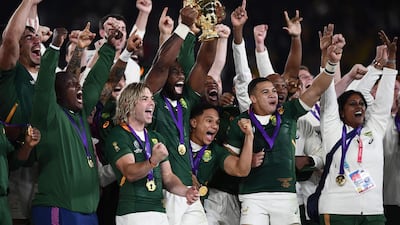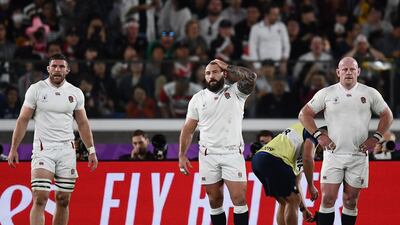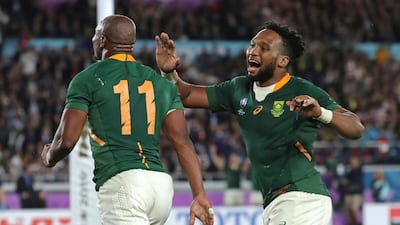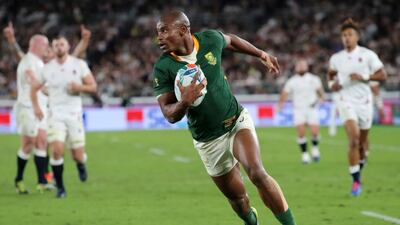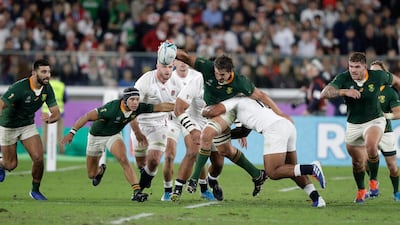Siya Kolisi said he hoped his team had proved their troubled country “can achieve anything if we work together as one” as he led South Africa to victory in the Rugby World Cup final.
The Springboks claimed the Webb Ellis Cup for the third time, as tries from Makazole Mapimpi and Cheslin Kolbe, plus 22 points froom the boot of Handre Pollard, gave them a 32-12 win over England in Japan.
“I am just grateful, grateful for everything this team have been through,” Kolisi, South Africa’s captain, said.
“This team has faced a lot of challenges, but the people of South Africa have got in behind us. We are so grateful to the people of South Africa.
“We have so many problems in our country. In a team like this, we know we come from different backgrounds and different races, and we came together with one goal.
“We really wanted to achieve it, and I really hope we have done that for South Africa. It shows if we pull together we can achieve something.”
Kolisi is the first black player to hold the post of South Africa captain. He followed Francois Pienaar, in 1995, and John Smit, in 2007, in lifting the World Cup.
“Since I have been alive, I have never seen South Africa like this,” Kolisi said.
“In 1995, we saw what the World Cup did for us. With all the challenges we have had, the coach before the last game said, we are not playing for ourselves any more, we are playing for our people back home.
“That is what we wanted to do today. We really appreciate all the support, from the people people on the farms, homeless people as there were screens there, and people in the rural areas.
“Thank you so much, we appreciate all the support. We love you, South Africa. We can achieve anything if we work together as one.”
Rassie Erasmus, who has transformed the fortunes of the Springboks since taking over as coach two years ago, oversaw the ultimate success in his last match in the role.
“We knew the intelligence we have in South Africa, and the supporters, and all the resources we have,” Erasmus said.
“There are so many good things in South Africa, but often in the past we preferred to look at all the bad things.
“We just said, listen, let’s stand together, work really hard, give it everything on the field, and anything else will come later. I think that is what we did.”
